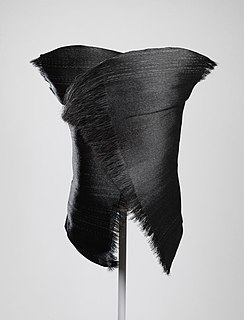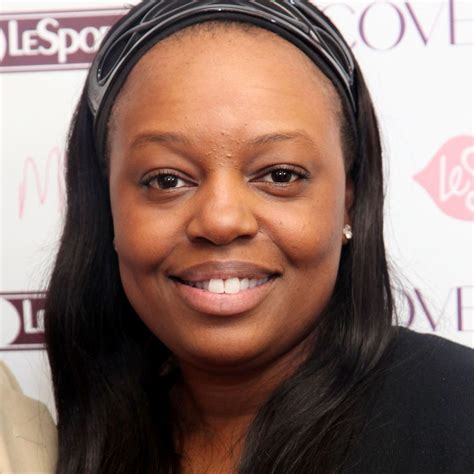A Quote by Sruli Recht
Making clothing is not just about the application of style and technique. At some stage, you want to experiment with new materials, or experiment in making materials. When you have a material to yourself, you get to make something totally new based on how that material acts. The access afforded by this tannery pushes you beyond your comfort or knowledge zone of hue and texture, forcing you - the designer - to think about how that flat plane will act when it enters the third dimension.
Related Quotes
Necessity is not the mother of invention. Knowledge and experiment are its parents. It sometimes happens that successful search is made for unknown materials to fill well-recognized and predetermined requirements. It more often happens that the acquirement of knowledge of the previously unknown properties of a material suggests its trial for some new use. These facts strongly indicate the value of knowledge of properties of materials and indicate a way for research.
If orange trees grew all over the country, you couldn't sell oranges. Do you understand that? So, all our decision making is based upon scarcity or the availability of resources. If we have a shortage of any kind of resource, we put all the labs to work on making substitute materials. People always worry about 'What if we run out of a certain material?', but we have enough technology today to make thousands of different substitutes.
If you're stuck in a rut doing the same thing over and over again, what are you actually, really achieving? I'm someone who strives for success, for self-growth and new experiences, and to make a record that pushes me out of my comfort zone is something that's really exciting. It means you're making new decisions, you're making bold decisions, you're being scared, and you're getting through that - hopefully making something you're proud of, or being in a better position that makes you feel stronger as a human being.
I was really strict about my daughter sleeping in her own room, and now she's really independent and likes it that way. So I think for all new moms, I can totally see how you can get wrapped up in making your child 100% your time. But if you could just take 5% or 10% for yourself a day, it won't just make the difference in your confidence, but also your sanity. I think once you just set boundaries and how you're going to parent - everyone parents differently so I hate to be that person to tell them how anyone should parent, I think whatever works for you works.
Anything from making a mistake on an experiment that would ruin some scientist on earth's experiment - career, potentially - to doing something wrong with the satellite that a country was depending on for its communications, to making some mistake that could actually cost you and the crew either a mission or your lives. So there is a lot of pressure that's put on every astronaut to just make sure that he or she understands exactly what to do, exactly when to do it, and is trained and prepared to carry it out.
When you advance a frontier, you're doing something that no one has done before. Every time that happens, you have to innovate. You have to think in new ways that hadn't been thought before. You have to invent a new piece of hardware, a new concept, a new law of physics, a new material, a new construction material to enable you to accomplish what it is that you chose to reach for by dreaming about tomorrow.
How a designer gets from thought to thing is, at least in broad strokes, straightforward: (1) A designer conceives a purpose. (2) To accomplish that purpose, the designer forms a plan. (3) To execute the plan, the designer specifies building materials and assembly instructions. (4) Finally, the designer or some surrogate applies the assembly instructions to the building materials. What emerges is a designed object, and the designer is successful to the degree that the object fulfills the designer's purpose.
In our quest to quickly make three-dimensional objects, we can miss out on the experience of making something that helps give us our first understandings of form and material, of the way a material behaves--'I press too hard here, and it breaks here' and so on. Some of the digital rendering tools are impressive, but it's important that people still really try and figure out a way of gaining direct experience with the materials.
There's all of the DVD extra material and all these other pieces of information that don't fit into a 90-minute experience, but it's still content and people still want to see it. It's being open to [the fact that] the business is changing and being open to how you can make money to afford you to stay in business to keep making new things. I think you just have to have an open mind and be really smart about stuff and not be so locked into the conventional way of how the process used to go.
































